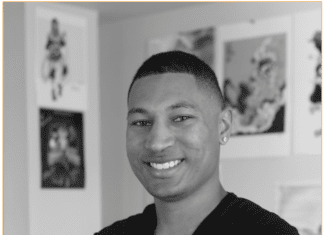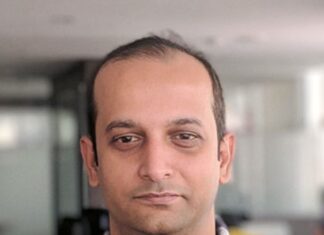Greg Rafferty is the author of Forecasting Time-Series Data with Facebook Prophet, we got the chance to sit down with him and find out more about his experience of writing with Packt.
Q: How did you become an author for Packt? Tell us about your journey.
Greg Rafferty: Over a year ago, I wrote a short blog post on Medium as a quick introduction to Facebook Prophet. A Packt publisher read that article and reached out to inquire if I would be interested in writing a book. From writing the blog post, I knew the potential and depth of Prophet and felt that there was plenty of additional material I could cover to make a book-length body of the valuable text. Plus, during COVID I was in lockdown in San Francisco and with little else to do, writing a book was a wonderful activity to keep me busy!
Q. What was your motivation for writing this book? How long did it take you to write the book?
Greg Rafferty: As a data scientist and previously a manager, I’ve often dealt with the challenges of accurate forecasting. When Facebook released Prophet as open-source software, I recognized the potential of this new tool but was disappointed that the documentation was difficult to follow, not organized intuitively, and left many features out. As I taught myself to use Prophet, I discovered areas which I could improve and so became a contributor to the official code repository. Through this experience, I felt that I understood the tool better than I would have had I merely read the documentation, and I decided to write a book which shared my path of discovery starting from the high-level and diving deep into every feature available.
Q: What kind of research did you do, and how long did you spend researching before beginning the book?
Greg Rafferty: I was already well-versed in Prophet before beginning, but I spent about 20 hours up-front making an outline and ensuring all topics were covered. While writing each chapter, I had the code repo open and constantly went back-and-forth between my text and the code to be sure everything was discussed accurately. Additionally, I volunteered as a contributor on the code repo and fixed several bugs as well as built some new features, so I had the original developers quickly at hand whenever I had a question or a point of confusion.
Q: Did you face any challenges during the writing process? How did you overcome them?
Greg Rafferty: There were a few times when I was trying to create an example of some relatively obscure feature, but my results just weren’t matching what I was expecting. In these moments, it was so valuable to me to be able to query the contributor base on the repo, and in some of these cases it turned out that I had discovered a bug and so I was able to actually improve Prophet through bug fixes while writing the book.
Q: What’s your take on the technologies discussed in the book? Where do you see these technologies heading in the future?
Greg Rafferty: As a contributor to the code repository, I follow many internal discussions of future plans. Facebook Prophet is continuously under development and there are many more features to come in the near future. Other developers have taken the ideas presented and build upon them; one example is NeuralProphet, a forecasting tool borrowing the same syntax as Prophet but built using deep learning neural networks for the forecasting models. Learning Prophet will leave the reader able to understand and quickly onboard to these new tools if and when their performance matches or exceeds Prophet’s for a given task.
Q. Why should readers choose this book over others already on the market? How would you differentiate your book from its competition?
Greg Rafferty: This is the first book with a focus on Facebook Prophet. Other books about forecasting may only touch on Prophet, and none of them cover all of the features of this powerful tool.
Q. What are the key takeaways you want readers to come away from the book with?
Greg Rafferty: With a small amount of coding experience, anyone can build highly customizable and powerful forecasts. Readers will learn how to build a lightning-quick forecast with high accuracy, tune it with countless parameters to hone in on the performance, and run diagnostics in order to compare different forecast models and report results.
Q. What advice would you give to readers learning tech? Do you have any top tips?
Greg Rafferty: Whenever you want to learn a new tool or process, find a project that you find personally fascinating and use the new tool to complete the project. Share your work on your own blog; writing about it will help you discover errors you may have made, areas for improvement, and cement the learning you accomplished while building the project.
Q. How do you keep up-to-date on your tech? Do you have a blog that readers can follow?
Greg Rafferty: Whenever I learn about an interesting new tool that I want to learn, I try to find a problem which that tool is perfectly suited to solve, and then I learn the tool by solving the problem. I read a lot of blog posts in the process and whenever I can I go to the code repo itself to understand what the tool does and how it works. I read a lot of books as well and am always collecting books on interesting topics, just keeping them around for whenever I’ve got the time, or a specific problem to solve which fits the technology. My Medium profile is at https://medium.com/@raffg, and I will often post on Towards Data Science.
Q. Can you share any blogs, websites and forums to help readers gain a holistic view of the tech they are learning?
Greg Rafferty: https://towardsdatascience.com/ is a good starting place for an intro to any new tech. However, always be aware that you’re often reading second-hand, or third-hand, accounts. It is always best to go to the source code when possible.
Q. How would you describe your author journey with Packt? Would you recommend Packt to aspiring authors?
Greg Rafferty: Packt approached me after reading a blog post I wrote about Facebook Prophet. The timing was perfect as with COVID I suddenly found myself at home with a lot more time on my hands so I gladly accepted the opportunity to write a book. It has been an incredible learning experience, both about the actual process of writing and publishing a book and also about Prophet itself, but it’s also a difficult journey. It took much more time than I initially planned for and I spent many frustrating days trying to find an intuitive way to describe something complex or working to get my own understanding of a feature up to the level where I felt confident that I had something new, unique, and valuable to say.
Q. How do you see these technologies benefiting society in the long run?
Greg Rafferty: Forecasting is a technique that previously required a highly-skilled statistician with coding experience and deep domain knowledge many, many hours to complete. Data is coming at us at too rapid a rate for this small cohort of forecasters to handle. Prophet is the first tool publicly available that allows a junior analyst to quickly build a forecast of comparable quality to that built by the specialist with years of experience. Companies all over the world are actively developing competing tools because whoever can build accurate forecasts the quickest is going to be able to make their business decisions the quickest, leading to much more competition in the marketplace.
You can find Greg Rafferty’s book on Amazon by following this link: Please click here









